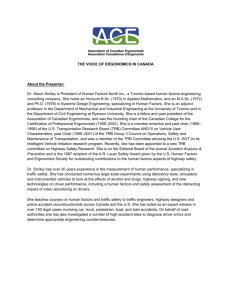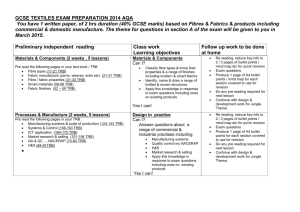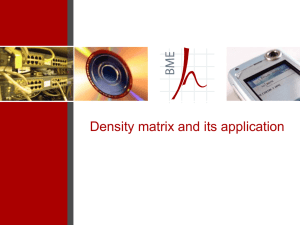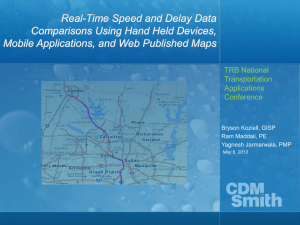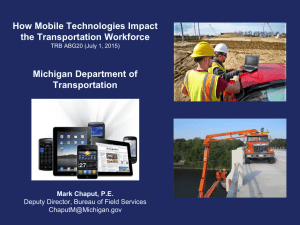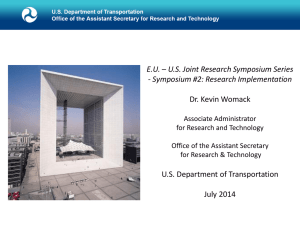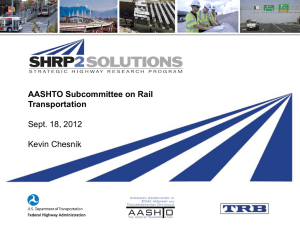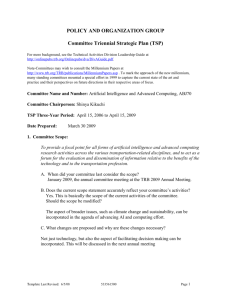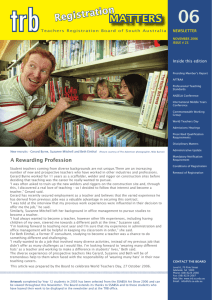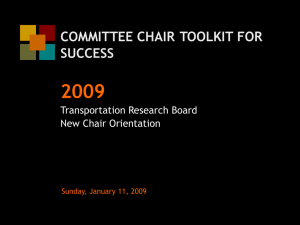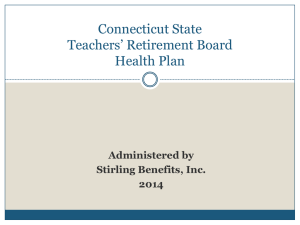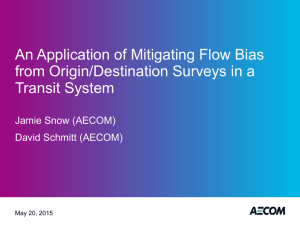Connected/Automated Vehicles – Issues for Transportation Research
advertisement
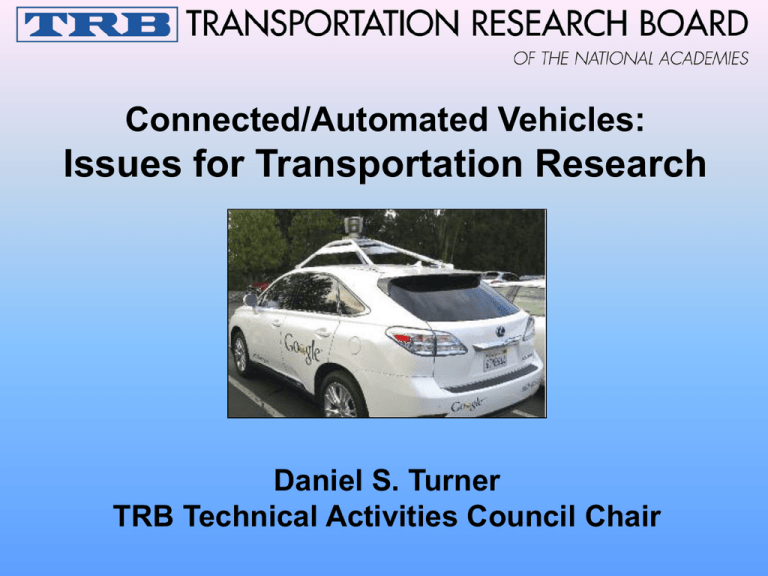
Connected/Automated Vehicles: Issues for Transportation Research Daniel S. Turner TRB Technical Activities Council Chair INTRO • TRB workshops and symposia increased understanding of connected/automated (C/A) vehicle issues • Clear that C/As have huge potential to transform transportation • Intrigues the public, press, and politicians (rarely happens in our profession!) • Can private sector wait for public sector? • What do these trends mean for our profession? IMPACTS ON TRB • TRB Excom adopted a new strategic plan • Bob Skinner will address it in the next session o Action Plan, 5 year strategies/action items • Foremost strategy is “Identify and address emerging and critical transportation issues in a more strategic and proactive manner” o Supplements bottom-up committee approach, coupled with a separate research program • TRB designated C/As to demonstrate the new “more strategic and proactive approach to emerging issues” • Previous TRB workshops helped identify the most needed research o Summarized in the July-Aug issue of TRB’s bi-monthly magazine TR News TR News July-August 2014 2013 Autonomous Vehicles Conference • TRB Excom/standing committee leader actions: o C/A forum with research directors of federal agency sponsors o Presentations by Experts o Policy discussion on C/As • Excom established “next steps” for TRB: o o o Go from developing questions to prioritizing issues and prioritizing research Identify C/A gaps, set priorities, and pursue as appropriate Coordinate TRB activities with fed sponsors • One bullet • One bullet • One bullet • One bullet • One bullet o TRB will communicate updates to transportation community o 200 standing committees asked to discuss C/A: interest/impact for each committee, Engage experts to discuss these issues Follow-up activities as appropriate Find innovated ways to move crosscutting nature of C/A into standing committees • Consider a SHRP2 type research program STATE DOT & FED RESEARCH AGENCIES Individual TRB Excom members and invited guests explored a wide range of issues, including the following observations: FEDERAL ROLE (opinions on appropriate role continue to vary) • In today’s environment, is a major federal program (i.e., interstate system) possible? • Play a leading role in creating an environment to enable innovation and deployment? • Leading or junior partner to states and private sector? • Is it possible to develop and facilitate deployment of V2I systems fast enough for private sector? • If not, will private sector move more forward with “Google car” (mostly in-vehicle technology) or another new technology? • What federal legislation, regulations, policies will be needed? STATE GOVERNMENTS (includes DOTs) • Need centralized highway control systems, like air or other modes? • Can DOTs deploy/operate V2I systems, given current workloads and resources? • By the time DOTs select infrastructure to deploy, technology may have moved to the next phase • Safety will improve, but will DOTs accrue new liabilities? • States must likely adopt new laws, regulations, and certifications. How can we assure some degree of uniformity among the states? • Will conventional traffic control devices (signs, signals, markings) support automation? Can they be uniformly maintained at a high level to support C/A data needs? • Will C/A vehicles affect geometric design? CONVENTIONAL RESEARCH PROCESSES • Changes needed to effectively address C/A vehicles • May require different approaches to rapidly move from research to deployment • May need research based on actual deployment to create rapid learning cycles • May need to develop one or more “research roadmaps” TRB ACTIVITIES UNDERWAY • Major C/A activities include: o Sessions at 2015 Annual Meeting (spotlight theme “Corridors to the Future – Transportation and Technology”) o o EU-US C/A Symposium on Research Collaboration in April 2015 in DC UTC Symposium on C/A in late 2015 in DC CRP projects currently underway: • A Look at the Legal Environment for Driverless Vehicles • Costs and Benefits of Public-Sector Deployment of V2I Technologies • Automated Vehicle Research Roadmap for State DOTs • Impacts of Automated Vehicles on State and Local Transportation Agencies ($1M) CONCLUSIONS • C/A has exciting possibilities • It has awakened interest at all levels, maybe akin to the Interstate System • It can radically change transportation • There are still a lot of questions… and more questions after that! • But where there are questions… • We turn to research to find answers and identify priorities • I look forward to the future, especially the day that my C/A drives me to the TRB Annual Meeting! Of This Presentation The beginning of an exciting period of transportation research, Implementation, and Progress
